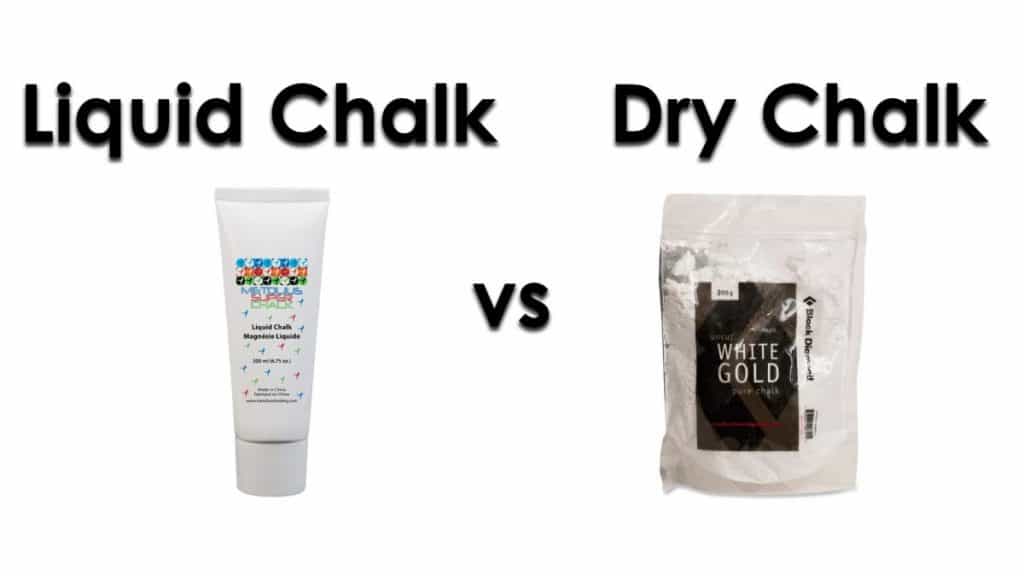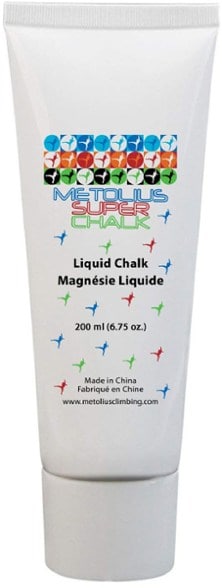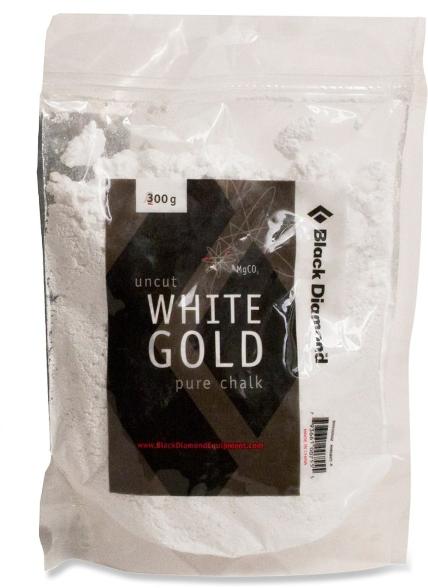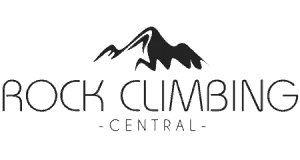
If you’ve been rock climbing for a while now, then I’m sure you know the importance of chalk for increased friction and improved grip. Especially when temperatures are hot and hands are greasy, this substance helps to dry out the secreted oils and moisture. However, while searching for the right chalk product, you may have come across two major different types and were confused wondering which one to choose: liquid chalk and dry aka regular chalk. In this article, we’ll evaluate both of them to help you decide the right one for you.
So, is liquid chalk better than regular chalk for climbing? When you compare the pros and cons of each, liquid chalk has more advantages and fewer disadvantages. Therefore, it’s easy to determine that this type is better than regular chalk. However, your choice should largely depend on what you’re looking for because both of them have different qualities. For instance, if you’re looking for something that dries out your hands quickly and lasts longer then liquid chalk is the most suitable choice. But if you’re a beginner rock climber on a budget, and your hands are prone to over-drying and cracking, dry chalk may be the appropriate choice.
The rule of the thumb is evaluating your needs, comparing the pros and cons of each type, and choosing one that suits your specific needs or circumstances.
Page Jumps
- Pros of Liquid Chalk When Climbing
- Pros of Regular Chalk When Climbing
- What Situation is Liquid Chalk Better to Use when Climbing
- What’s the Difference Between Liquid Chalk and Dry Chalk?
Pros of Liquid Chalk When Climbing

Liquid chalk is antibacterial
Are you looking for something that will offer drying benefits as well as kill bacteria and other harmful elements on your hands? Then choose liquid chalk. One of the ingredients used to make liquid chalk is alcohol, which is well-known as an antibacterial agent. Especially during these times when we’re facing COVID-19, going with something that kills bacteria and viruses on your hands is a wise decision for enhanced safety against this disease.
Liquid chalk isn’t as messy
One disadvantage of dry chalk is that it leaves a mess on the floor after applying. When you grab some of it from your bag and apply it on your hands, some amounts may fall on the floor and require cleaning. That isn’t the case with liquid chalk. Since it usually comes in a tube, you just squirt a small amount on your palms and spread it all over your hands without leaving any mess.
Liquid chalk is smaller and lighter to carry than dry chalk
Rock climbing means you’re carrying your weight to the top. And since that itself can be very challenging, you surely don’t need additional weight pulling you down. That’s where liquid chalk comes to help; it’s smaller and lighter. You just need to put the tube in your pockets and get it whenever you need to re-apply. You won’t even notice you have it!
Liquid chalk lasts a long time on your hands
Another excellent quality about liquid chalk is its durability. It lasts longer on your hands compared to dry chalk. This can come in handy when you’re making a long, difficult climb and will have fewer chances of re-applying.
Liquid chalk is easier to clean off than regular chalk
When you use dry chalk, your palms absorb a lot of it, which means they’ll need a thorough cleaning after climbing. However, even though liquid chalk lasts longer, it only forms a small layer on your hands. What this means is that you can clean it easily without a lot of scrubbing.
Liquid chalk is easier to apply than regular chalk
As you rock climb, you’ll come across difficult routes that will have you sweating a lot. Since you’re already in a challenging position, you’ll need something easy to use. Liquid chalk’s liquid form makes it easier to apply an even coat onto your palms. This isn’t the case with dry chalk where you can struggle applying it and achieving an even coat.
Liquid chalk dries out your hands quicker than regular chalk
Other than easiness, another thing challenging routes demand is quickness. The more you wait, the more you get tired. If you need to dry out your hands first, liquid chalk is the most suitable choice. It contains alcohol which evaporates quickly, leaving you with moisture-free hands.
Better for your lungs
In addition to creating a mess on the floor, dry chalk can leave dust in the air. You should be concerned if you have respiratory problems such as asthma. Exposure to chalk dust can make you cough, wheeze, and have shortness of breath. Even if you don’t have any respiratory issue, chalk dust can carry other contaminants into your body and affect your health negatively. Liquid chalk doesn’t create any dust and thus contributing to better lung health. I’ve written an article on the scientifically studied, negative effects of dry chalk on peoples’ health which you can find here.
Does not cover your clothes with white marks
Dry chalk gets on almost everything you’re carrying on your rock climbing adventure. It gets on your clothes and other items, which means you’ll face the tough task of cleaning later. However, since liquid chalk is liquid, it doesn’t get on your clothes during application. And since it comes in a well-enclosed tube, it doesn’t leak to other items.
Better for deep water soloing
Let’s say you’re deep water soloing, and you accidentally fall into the water, what will happen to your bag of dry chalk? It will get wet and everything will be ruined. You may even lose all your chalk in the water. However, liquid comes in a tube impenetrable by water. Even if you fall to the deepest part of the water, your chalk will remain safe.
Pros of Regular Chalk When Climbing

Dry chalk is better for your skin
If you have sensitive skin that’s susceptible to over-drying and cracking, then dry chalk is better. We’ve already mentioned that liquid chalk contains alcohol and stays longer. What you need to know is that the longer it stays, the more it continues drying out your hands. That may not work well for people with sensitive skin.
Dry chalk can be stored in a chalk bag and application is easier when you’re on the wall
With a chalk bag strapped in your waist, the application process is very easy. All you need to do is dip your hands into the bag, grab a small amount, and rub it onto your palms and fingers.
Dry chalk does not spoil when left out in the air
One disadvantage of liquid chalk is that you can’t leave it out in the open for a long time. The ethanol in it can evaporate leaving a solid substance that you can’t use. Unlike liquid chalk, regular chalk doesn’t spoil when left out in the open.
Dry chalk doesn’t put you at the risk of eczema
We’ve already mentioned that alcohol is the ingredient in liquid chalk that makes your hands drier for longer. If you use it for a long time, the constant dryness can impact your body negatively and put you at the risk of eczema. Your skin may start feeling itchy and getting rough. However, dry chalk doesn’t contain alcohol, which means lower chances of eczema.
Dry chalk doesn’t contain Rosin
Apart from alcohol, another component contained in liquid chalk is rosin. It’s a type of resin from pine trees. This component can contribute to allergic reactions on the skin – you may find yourself with itchy skin inflammation after using this chalk type. That isn’t the case with dry chalk. It doesn’t contain Rosin and thus no Rosin-related allergies.
Gram for gram, regular chalk is cheaper
If you’re climbing on a budget, regular chalk is the cheaper option when you compare it gram for gram with liquid chalk. You can even get it at liquid chalk’s half price. However, if you’re looking for a great liquid chalk that’s not too expensive then check out the Metolius Super Chalk. Check out my recommended climbing chalks if you’re settled on dry chalk.
What Situation is Liquid Chalk Better to Use when Climbing
There are situations when liquid chalk is a superior choice. One instance is when you’re navigating longer climbs. A longer climb means you’ll need to apply chalk on your hands more often. Liquid chalk can significantly reduce the number of times you re-apply chalk on your hands because it lasts longer. The second situation is if you have excessively sweaty hands. With alcohol as one of its elements, liquid chalk provides better and quicker drying power. You can dry your palms faster and achieve a better grip in no time.
Are you also a climber who needs more room in the climbing pack outdoors? Then liquid chalk is a better option for you because doesn’t leave as many marks on the rocks. Some climbers want to find their own routes, and that is hard with the lots of marks left by dry chalk.
What’s the Difference Between Liquid Chalk and Dry Chalk?
The first difference between these two is the one you can tell by looking at their names – one is liquid, and the other is powdered. The second difference: liquid chalk is usually either calcium carbonate or magnesium carbonate mixed with alcohol, rosin, and a thickening agent while dry chalk is magnesium carbonate and may contain added drying agents. The alcohol/ethanol in liquid chalk is what dissolves the Rosin and keeps the calcium carbonate in liquid form. When applied to your hands, the alcohol evaporates quickly and leaves a more solid substance to offer the much-needed friction and grip.
Is liquid chalk better than regular chalk? Overall, liquid chalk is better in most circumstances. The main exceptions are if your skin is prone to over-drying and if you would rather spend less. But when it comes to spending less on dry chalk, also consider that you’re more likely to lose dry chalk when applying than liquid chalk. Why don’t you try both of them to see which one works better for you?
Is liquid chalk safe? Yes, it’s completely safe to use apart for people with highly sensitive skin. You can try a small amount of it to know whether you’re allergic. If you’re not, then consider choosing this chalk type. It offers better drying power, doesn’t create any chalk dust, and leaves no mess, which makes it an excellent choice for indoor/gym climbing.
